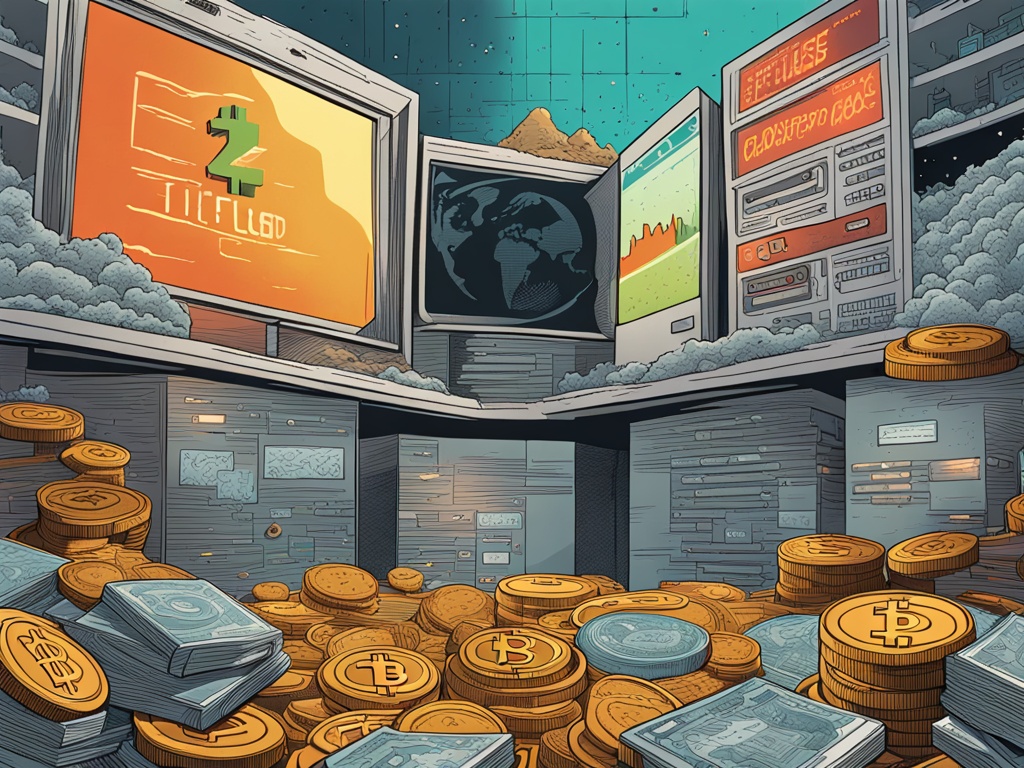Understanding Apple’s Siri Settlement: What Does it Mean for Privacy and the Crypto Market?
Hey there! Let’s dive into an intriguing development that has shaken some confidence in privacy tech, especially coming from a giant like Apple. Recently, they agreed to fork over $95 million to settle a lawsuit over Siri, claiming it recorded conversations without users giving the thumbs up. Now, you might wonder, “What’s the big deal—and how does it connect to the crypto market?” Spoiler alert: it’s more intertwined than you might think!
Key Takeaways:
- Apple settled a lawsuit for $95 million over privacy concerns related to Siri.
- The lawsuit claimed Siri recorded conversations even when not activated.
- Consumers could claim up to $20 per device for the years they owned Siri-enabled products.
- Only a small percentage of users (3-5%) are expected to file claims.
- This privacy controversy raises concerns about user trust that can ripple through the tech ecosystem.
Privacy First: Why This Matters
First off, privacy is like the holy grail in both tech and crypto. Users want to know that their information is safe, whether they’re chatting with Siri or trading Bitcoin. Apple has built its brand on the promise of privacy, claiming they never sold user data for ads or marketing. Yet, this lawsuit throws some serious shade on that reputation.
For the crypto world, where decentralization and privacy are key, such high-profile privacy failures could create a ripple effect. If centralized giants fail to protect user data, it might push even more people towards cryptocurrencies that offer greater anonymity. As a crypto analyst, I feel that this movement could lead to increased investments in decentralized finance (DeFi) platforms.
The Settlement Breakdown
Okay, let’s break down what users might expect from this settlement. If you own a Siri-enabled device from 2014 through the end of 2023, you might be eligible to claim up to $20 per device. Sounds appealing, right? But here’s the kicker—only 3% to 5% of eligible users are expected to submit claims. So, don’t bank on winning the lottery with this payout!
But hey, think about this for a second. If millions of people are affected (and they indeed are), that’s a significant amount that could reshape consumer trust. Lower trust levels could spark a movement towards solutions that are built on transparency—like cryptocurrencies.
The Broader Crypto Perspective
So, what’s the emotional angle here? It’s about trust. People want to feel safe about the technology they use. Imagine pouring your heart and savings into a crypto project only to find out they were mishandling information. That’s like a bad breakup!
When big players face these privacy issues, they might inadvertently promote the very solutions they seek to contain. For instance, decentralized platforms encourage users to control their data without a snoopy third party involved. Many investors are becoming more aware of how important privacy is, both in the real world and the digital one.
Practical Tips for Potential Investors
-
Stay Informed: Keep your ear to the ground about developments in privacy law and tech. This could directly affect your investments.
-
Diversity Matters: Consider diversifying your portfolio. Yes, Bitcoin is the popular kid, but explore altcoins that focus on privacy, like Monero or Zcash.
-
Look for Transparency: Research projects that prioritize transparency around user data and privacy from the get-go.
-
Join Community Discussions: Participate in crypto forums and groups where like-minded individuals discuss privacy-focused technologies.
- Watch Media Trends: Pay attention to how media coverage shifts perceptions—both about traditional tech companies and crypto.
Closing Thoughts
There you have it; a $95 million settlement isn’t just a tech story—it’s a societal one that mirrors the complexities in our digital lives today. Apple’s troubles can serve as a cautionary tale but also a beacon guiding users toward more secure and decentralized options like cryptocurrencies.
Now, as we wrap this chat, here’s something to ponder: How much of your trust are you willing to place in companies that depend on your data, and are you ready to embrace the cryptocurrency market as a viable alternative? Let’s keep the conversation going!





 By
By
 By
By
 By
By
 By
By
 By
By